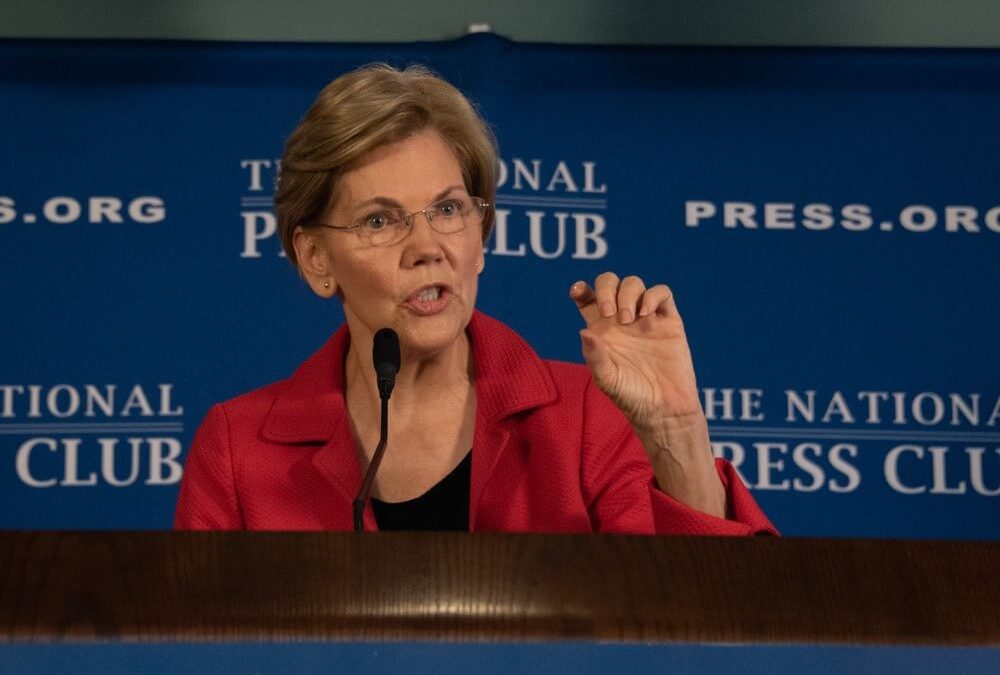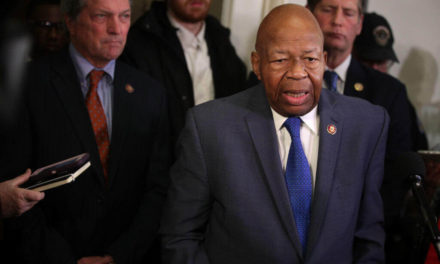Sen. Elizabeth Warren has announced a litany of new policy proposals should she be able to win the presidency in 2021, and she’s already promising to roll back President Donald Trump’s energy policies on her very first potential day in office.
Warren planted her flag squarely in the climate change debate last week, promising that if elected, she’d sign an executive order to end drilling on public lands and offshore, a move that would reverse some of Trump’s most notable energy policies straight out of the gate.
The proposal is already her ninth since announcing her plan to run in the Democratic primary for a shot at the White House, and it also would require at least 10% of all electricity used in the U.S. come from renewable sources offshore or on public lands.
Warren announced the plan in a blog post on Medium.com before venturing off on a three-state tour through South Carolina, Colorado and Utah, where she has built her campaign message around clean energy, climate change and environmental justice.
“America’s public lands are one of our greatest treasures,” Warren wrote. “But today, those lands are under threat. The Trump administration is busy selling off our public lands to the oil, gas and coal industries for pennies on the dollar — expanding fossil fuel extraction that destroys pristine sites across the country while pouring an accelerant on our climate crisis.”
Per ABC News:
The proposal also includes:
- Fully funding public land management agencies and requiring mandatory spending for the Land and Water Conservation Fund
- Creating a “21st century Civilian Conservation Corps” by employing 10,000 young people, funded by an increased AmeriCorps budget
- Restoring protections for Bears Ears and Grand Staircase Escalante, two national monuments in Utah that were opened for mining and drilling in 2017 — a decision still mired in lawsuits
- Free entrance to all national parks
“She identified two major issues facing national parks: lack of funding and climate change,” said Kristen Brengel, vice president of Government Affairs at the National Parks Conservation Association. “We need every presidential candidate to let the public know how they plan to address these issues. Previous administrations and Congresses have let these issues linger.”
Warren’s plan comes as Democratic candidates aim to make climate change a central issue ahead of the primaries. Presidential hopefuls, such as Gov. Jay Inslee of Washington, have already started a petition to dedicate one of 12 planned debates solely to discussing climate change. While other presidential candidates, like Vermont Sen. Bernie Sanders, New York Sen. Kirsten Gillibrand and South Bend, Indiana, Mayor Pete Buttigieg, have pledged not to accept campaign money from oil and gas special interest groups.
“This is part of a larger proposal. Public lands are a natural birth right. They belong to all of us,” Warren said during a “coastal community forum” in Charleston, South Carolina, an area caught in the center of an offshore drilling battle. “It is urgently important that we make a change. I want to be here to focus on at least a part of what the Trump administration is doing. And that is how they are opening up for offshore drilling — the drilling, the seismic explosions and what that means for poor communities and communities of color.”
Warren’s call for a ban on fossil fuel leases received an outpouring of support from environmental groups, but states that rely on drilling for the majority of income blasted the plan for being out of touch with the needs of Western communities.
“Senator Warren’s so-called ‘plan’ for federal lands shows how detached she is from the actual issues facing rural America and the West,” Rep. Paul A. Gosar, Congressional Western Caucus chairman, said in a statement. “The Senator makes clear she thinks of our federal lands as a place where rich people go to hike and sightsee instead of 640 million acres where multiple-use activities like grazing, timber harvesting and responsible energy production are critical to the survival of our communities.”
Garfield County, Utah, Commission Chairperson Leland Pollock told ABC News that Warren’s plan would economically devastate his county, which relies heavily on mineral extraction.
“I don’t have anything against Sen. Warren personally, but the problem is there’s a great divide with what goes on back east and what goes here in the west. It’s a whole different world,” said Pollock. “What she needs to do, honestly, is sit down and talk to people like me.”
A committee aide for the House of Representatives on Natural Resources pointed out that parts of her plan may be unrealistic, particularly her call to fully fund public land management agencies.
“Our national parks have more needs than ever to be funded by a variety of sources. We want the park units to have all sorts of different funding sources, whether that’s entrance fees, concessions, leases, private philanthropy, giving — those are things we want to incentivize public parks to do because it helps,” the aide told ABC News.
“What happens when we run into budgetary constraints? And then we have to depend on a single source of funding,” they added. “It’s just not a good way to administer, or manage. There will be recessions, there will be budget shortfalls, and then if the parks are dependent on just one source of revenue funding by the federal government, the parks will be in deep water.”




